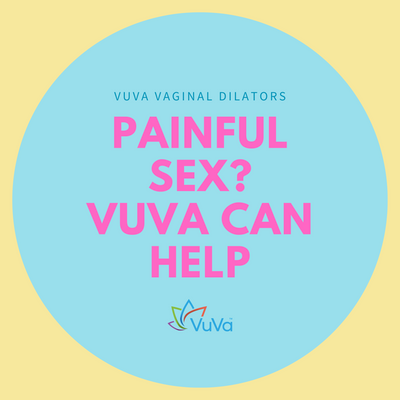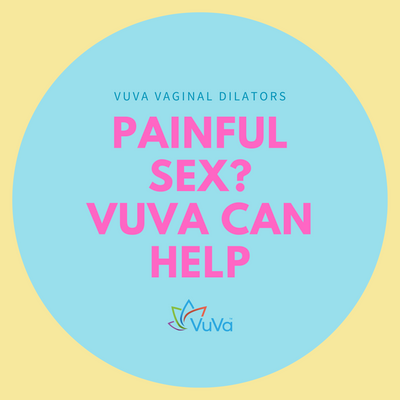
| Tara Langdale
How Common is Vaginismus? (Don't Ignore the Pain)
Sexual intercourse can become uncomfortable for many reasons— physical and psychological— but for a lot of women, the cause is vaginismus. Vaginismus is the involuntary spasms of vaginal muscles during penetrative sex. It not only causes pain during sex but also when inserting a tampon or undergoing a pap smear.
Unfortunately, vaginismus is a hidden problem that most women avoid discussing or seeking treatment to overcome. Women with vaginismus may experience deep shame, or talking about sex is taboo. The condition causes women to believe they are suffering alone when vaginismus is more common than they think. If you're experiencing painful vaginal muscle spasms, you shouldn’t ignore the pain.
What are the different types and causes of vaginismus?
The two main types of vaginismus are primary and secondary.
Primary vaginismus
Primary vaginismus is when vaginal pain has always been present throughout women's life. It causes women to freeze when sexually active or during a pelvic exam.
Sometimes the woman stops breathing and becomes still during intercourse, and once the attempt at penetration stops, the sensation disappears. The involuntary contraction makes having a healthy sex life almost impossible and brings about extreme discomfort for the women and possibly hurting relationships.
Secondary vaginismus
Secondary vaginismus occurs after women have experienced a healthy sex life, but for different reasons, intercourse has now become painful. Some of these reasons (physical and emotional) include:
- Pelvic radiation therapy: When a woman has radiation therapy for breast cancer or cervical cancer treatment, it may cause the vagina to shorten.
- Menopause: Women experiencing menopause may have vaginal atrophy (dryness) and painful vaginal penetration due to the imbalance of hormones.
- Relationship issues: Problems within a relationship may make sex hurt.
- Traumatic event: When you experience a traumatic event such as sexual abuse or sexual violence it may cause sexual dysfunction.
- Pelvic surgery: It's a broad term to include any kind of operation in the vaginal area.
- Medication: Some medications for menopause, cancer, and other health concerns may cause vaginal dryness, shortening of the vagina, and more.
What are the symptoms of vaginismus?
Vaginismus doesn’t prevent women from being sexually aroused. Women with vaginismus usually don’t have issues with sexual desire, but rather experience some or more of the following:
- Dyspareunia or tightening and burning sensation during sexual intercourse
- Long-term vaginal pain without a known cause
- Extreme discomfort during a vaginal exam
- Closing of the vagina when trying to insert a tampon
- Breathing cessation during intercourse
How is vaginismus diagnosed?
The diagnosis of vaginismus begins by describing your symptoms to your healthcare practitioner. Your doctor may ask you when you started to experience pelvic pain and other questions related to your sexual health.
You may need to undergo a gynecological exam to determine if any physical signs are causing the pain and discomfort. For some, this is the most stressful time during diagnosis. You can talk about ways to make the procedure more comfortable.
At the end of the consultation and exam, the doctor can determine if it’s vaginismus. If there’s no scarring or signs of infection, it usually means you have vaginismus.
What are the treatments for vaginismus?
Vaginismus is a treatable condition. Treatment varies by person, but the most common ways are counseling and vaginal dilators.
Physical floor therapy and counseling
Sex therapy primarily involves education around the anatomy of your body and the process of becoming sexually aroused. You’ll learn about what causes vaginismus too. Choosing a sex therapist experienced with sexual desire disorders and treating vaginismus may be helpful. The ultimate goal is to help promote relaxation and to overcome vaginismus.
Vaginal dilators
Vaginal dilators naturally help stretch the vagina to promote relaxation and well-being, VuVa™ Dilators come in various sizes to help women undergo dilator therapy as comfortable as possible.
Dilator therapy is the process of slowly inserting a cone-shaped device in the vagina. In the beginning, the dilator size is small, to make the pain and discomfort as gentle as possible. As you continue with the therapy, the dilator size slowly increases. Research shows that vaginal dilator therapy helps women improve sexual health.
Why shouldn't you ignore vaginismus pain?
Living with vaginismus causes emotional and physical trauma that causes severe problems in relationships. Finding solutions to sexual dysfunction can heal pain and save marriages.
While it may be hard to talk about vaginismus and seek treatment, there are answers. Vaginal dilators have helped thousands of women have the life they deserve. Invest in your sexual health by exploring the healing power of vaginal dilators. It’s never too late to overcome vaginismus.















